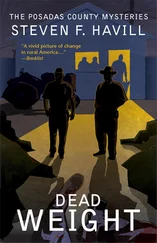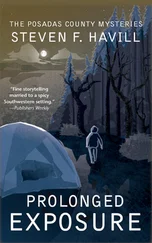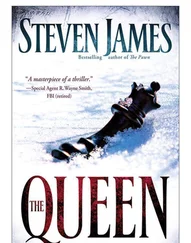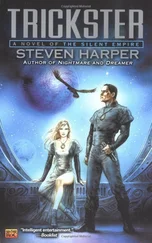Steven Dubner - Freakonomics
Здесь есть возможность читать онлайн «Steven Dubner - Freakonomics» весь текст электронной книги совершенно бесплатно (целиком полную версию без сокращений). В некоторых случаях можно слушать аудио, скачать через торрент в формате fb2 и присутствует краткое содержание. Жанр: Старинная литература, на русском языке. Описание произведения, (предисловие) а так же отзывы посетителей доступны на портале библиотеки ЛибКат.
- Название:Freakonomics
- Автор:
- Жанр:
- Год:неизвестен
- ISBN:нет данных
- Рейтинг книги:3 / 5. Голосов: 1
-
Избранное:Добавить в избранное
- Отзывы:
-
Ваша оценка:
- 60
- 1
- 2
- 3
- 4
- 5
Freakonomics: краткое содержание, описание и аннотация
Предлагаем к чтению аннотацию, описание, краткое содержание или предисловие (зависит от того, что написал сам автор книги «Freakonomics»). Если вы не нашли необходимую информацию о книге — напишите в комментариях, мы постараемся отыскать её.
Freakonomics — читать онлайн бесплатно полную книгу (весь текст) целиком
Ниже представлен текст книги, разбитый по страницам. Система сохранения места последней прочитанной страницы, позволяет с удобством читать онлайн бесплатно книгу «Freakonomics», без необходимости каждый раз заново искать на чём Вы остановились. Поставьте закладку, и сможете в любой момент перейти на страницу, на которой закончили чтение.
Интервал:
Закладка:
in 1990 to 596 in 2003.
These theories were not only logical; they were also encouraging, for they attributed the crime drop to specific and recent human initiatives. If it was gun control and clever police strategies and better-paying jobs that quelled crime—
well then, the power to stop criminals had been within our reach all along. As it would be the next time, God forbid, that crime got so bad.
These theories made their way, seemingly without question, from the experts’
mouths to journalists’ ears to the public’s mind. In short course, they became conventional wisdom.
There was only one problem: they weren’t true.
There was another factor, meanwhile, that had greatly contributed to the massive crime drop of the 1990s. It had taken shape more than twenty years earlier and concerned a young woman in Dallas named Norma McCorvey.
Like the proverbial butterfly that flaps its wings on one continent and eventually causes a hurricane on another, Norma McCorvey dramatically altered the course of events without intending to. All she had wanted was an abortion. She was a poor, uneducated, unskilled, alcoholic, drug-using twenty-one-year-old woman who had already given up two children for adoption and now, in 1970, found herself pregnant again. But in Texas, as in all but a few states at that time, abortion was illegal. McCorvey’s cause came to be adopted by people far more powerful than she. They made her the lead plaintiff in a class-action lawsuit seeking to legalize abortion. The defendant was Henry Wade, the Dallas County district attorney. The case ultimately made it to the U.S. Supreme Court, by which time McCorvey’s name had been disguised as Jane Roe. On January 22, 1973, the court ruled in favor of Ms. Roe, allowing legalized abortion throughout the country. By this time, of course, it was far too late for Ms. McCorvey/Roe to have her abortion. She had given birth and put the child up for adoption. (Years later she would renounce her allegiance to legalized abortion and become a prolife activist.)
So how did Roe v. Wade help trigger, a generation later, the greatest crime drop in recorded history?
As far as crime is concerned, it turns out that not all children are born equal. Not even close. Decades of studies have shown that a child born into an adverse family environment is far more likely than other children to become a criminal.
And the millions of women most likely to have an abortion in the wake of Roe v.
Wade—poor, unmarried, and teenage mothers for whom illegal abortions had been too expensive or too hard to get—were often models of adversity. They were the very women whose children, if born, would have been much more likely than average to become criminals. But because of Roe v. Wade, these children weren’t being born. This powerful cause would have a drastic, distant effect: years later, just as these unborn children would have entered their criminal primes, the rate of crime began to plummet.
It wasn’t gun control or a strong economy or new police strategies that finally blunted the American crime wave. It was, among other factors, the reality that the pool of potential criminals had dramatically shrunk.
Now, as the crime-drop experts (the former crime doomsayers) spun their theories to the media, how many times did they cite legalized abortion as a cause?
Zero.
It is the quintessential blend of commerce and camaraderie: you hire a real-estate agent to sell your home.
She sizes up its charms, snaps some pictures, sets the price, writes a seductive ad, shows the house aggressively, negotiates the offers, and sees the deal through to its end. Sure, it’s a lot of work, but she’s getting a nice cut. On the sale of a $300,000 house, a typical 6 percent agent fee yields $18,000. Eighteen thousand dollars, you say to yourself: that’s a lot of money. But you also tell yourself that you never could have sold the house for $300,000 on your own. The agent knew how to—what’s that phrase she used?—“maximize the house’s value.” She got you top dollar, right?
Right?
A real-estate agent is a different breed of expert than a criminolo-gist, but she is every bit the expert. That is, she knows her field far better than the layman on whose behalf she is acting. She is better informed about the house’s value, the state of the housing market, even the buyer’s frame of mind. You depend on her for this information. That, in fact, is why you hired an expert.
As the world has grown more specialized, countless such experts have made themselves similarly indispensable. Doctors, lawyers, contractors, stockbrokers, auto mechanics, mortgage brokers, financial planners: they all enjoy a gigantic informational advantage. And they use that advantage to help you, the person who hired them, get exactly what you want for the best price.
Right?
It would be lovely to think so. But experts are human, and humans respond to incentives. How any given expert treats you, therefore, will depend on how that expert’s incentives are set up. Sometimes his incentives may work in your favor.
For instance: a study of California auto mechanics found they often passed up a small repair bill by letting failing cars pass emissions inspections—the reason being that lenient mechanics are rewarded with repeat business. But in a different case, an expert’s incentives may work against you. In a medical study, it turned out that obstetricians in areas with declining birth rates are much more likely to perform cesarean-section deliveries than obstetricians in growing areas—suggesting that, when business is tough, doctors try to ring up more expensive procedures.
It is one thing to muse about experts’ abusing their position and another to prove it. The best way to do so would be to measure how an expert treats you versus how he performs the same service for himself. Unfortunately a surgeon doesn’t operate on himself. Nor is his medical file a matter of public record; neither is an auto mechanic’s repair log for his own car.
Real-estate sales, however, are a matter of public record. And real-estate agents often do sell their own homes. A recent set of data covering the sale of nearly 100,000 houses in suburban Chicago shows that more than 3,000 of those houses were owned by the agents themselves.
Before plunging into the data, it helps to ask a question: what is the real-estate agent’s incentive when she is selling her own home? Simple: to make the best deal possible. Presumably this is also your incentive when you are selling your home. And so your incentive and the real-estate agent’s incentive would seem to be nicely aligned. Her commission, after all, is based on the sale price.
But as incentives go, commissions are tricky. First of all, a 6 percent real-estate commission is typically split between the seller’s agent and the buyer’s. Each agent then kicks back half of her take to the agency. Which means that only 1.5
percent of the purchase price goes directly into your agent’s pocket.
So on the sale of your $300,000 house, her personal take of the $18,000
commission is $4,500. Still not bad, you say. But what if the house was actually worth more than $300,000? What if, with a little more effort and patience and a few more newspaper ads, she could have sold it for $310,000? After the commission, that puts an additional $9,400 in your pocket. But the agent’s additional share—her personal 1.5 percent of the extra $10,000—is a mere $150. If you earn $9,400 while she earns only $150, maybe your incentives aren’t aligned after all. (Especially when she’s the one paying for the ads and doing all the work.) Is the agent willing to put out all that extra time, money, and energy for just $150?
There’s one way to find out: measure the difference between the sales data for houses that belong to real-estate agents themselves and the houses they sold on behalf of clients. Using the data from the sales of those 100,000 Chicago homes, and controlling for any number of variables—location, age and quality of the house, aesthetics, and so on—it turns out that a real-estate agent keeps her own home on the market an average of ten days longer and sells it for an extra 3-plus percent, or $10,000 on a $300,000 house. When she sells her own house, an agent holds out for the best offer; when she sells yours, she pushes you to take the first decent offer that comes along. Like a stockbroker churning commissions, she wants to make deals and make them fast. Why not? Her share of a better offer—
Читать дальшеИнтервал:
Закладка:
Похожие книги на «Freakonomics»
Представляем Вашему вниманию похожие книги на «Freakonomics» списком для выбора. Мы отобрали схожую по названию и смыслу литературу в надежде предоставить читателям больше вариантов отыскать новые, интересные, ещё непрочитанные произведения.
Обсуждение, отзывы о книге «Freakonomics» и просто собственные мнения читателей. Оставьте ваши комментарии, напишите, что Вы думаете о произведении, его смысле или главных героях. Укажите что конкретно понравилось, а что нет, и почему Вы так считаете.











